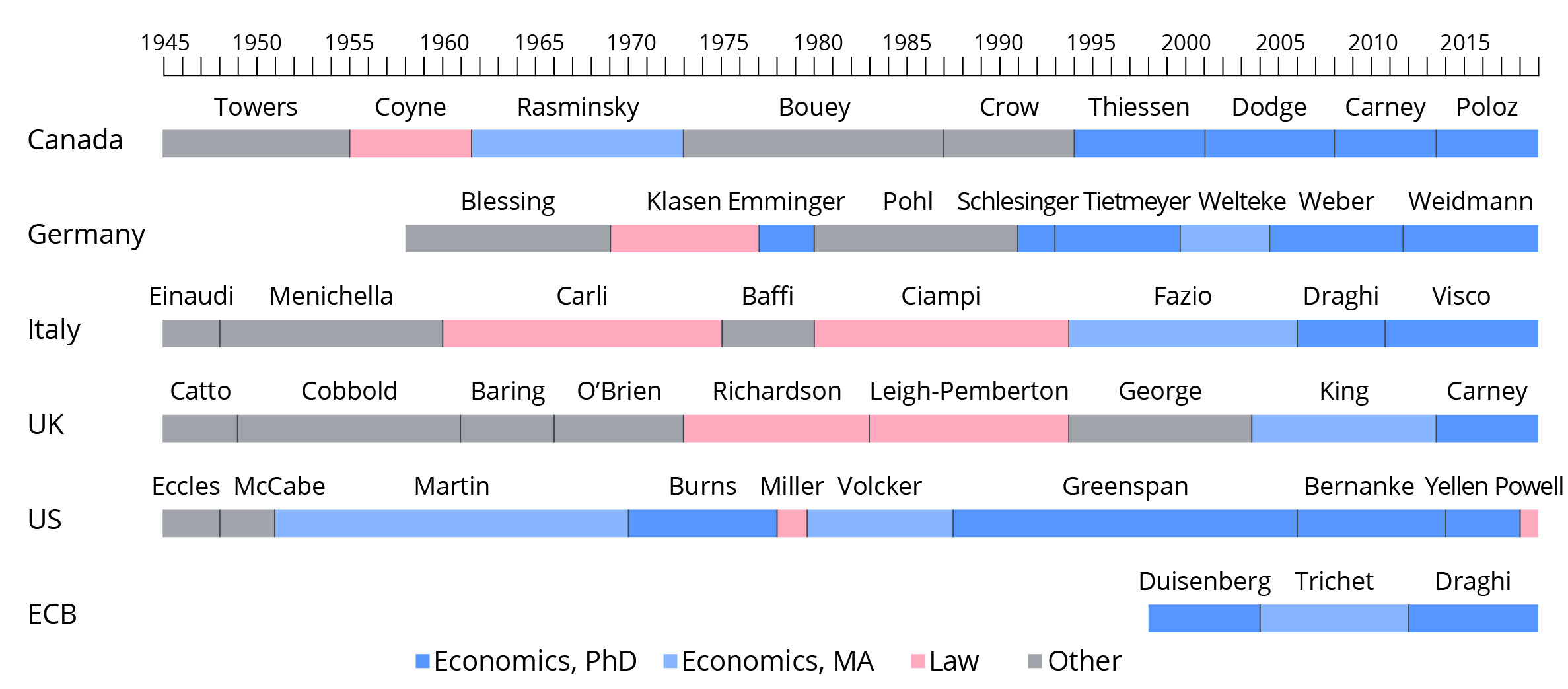5 February 2018 | 2 min read
Powell’s Outside Status Breaks Central Bank Pattern

Jerome Powell, the new chair of the Federal Reserve, lacks an economics PhD – a cause for handwringing among many commentators. But there should arguably be at least as much concern that this one academic discipline has had such a vicelike grip on global monetary policy for so long.
Powell, a lawyer and financier by background, will be the first head of the Fed without a doctorate in economics in 30 years. Ignoring William Miller’s brief tenure in the late 1970s, Powell will be the first without a Master’s degree in the field since the US central bank gained independence from the Treasury in 1951.
Some central bankers have themselves questioned the necessity of such credentials. Paul Volcker never received a PhD, and scoffed at the idea that it was a prerequisite, emphasising management experience and “guts”. Volcker has even argued that Ben Bernanke’s most important training came from his stint on a local school board, rather than from his MIT PhD.
Nonetheless, the United States and several other countries have a long record of picking economists as central bank governors. A look at six central banks reveals that since 1990, economics PhDs have made up over 70% of governor appointments.

Furthermore, the increasing mathematisation of economics is summed up by a response former Fed vice chair Alan Blinder gave to the journalist Justin Fox. When asked whether an economics PhD was a prerequisite for the Fed’s top job, Blinder replied in the affirmative, adding, “otherwise, the Fed’s staff will run technical rings around you”.
Central bankers have not always received such homogenous educations, however. Between 1945 and 1989 economics PhDs made up only 11% of governor appointments, our review of the data shows. Indeed, for most of the post-war period, Bank of England governors came to the role following careers in banking or civil service, with no advanced education in economics.
Varied backgrounds were seen elsewhere. Carlo Azeglio Ciampi studied ancient Greek and resisted fascism before joining the Bank of Italy, where he presided over the transition to independence and the taming of inflation. The stewards of the Bundesbank for its first 20 years had backgrounds in business as well as law.
Even today, Zhou Xiaochuan, who since 2002 has led the People’s Bank of China, is an engineering PhD. In this light, Powell’s previous experience could be equally viewed as injecting a bit more educational diversity into one of the world's foremost central banks.



